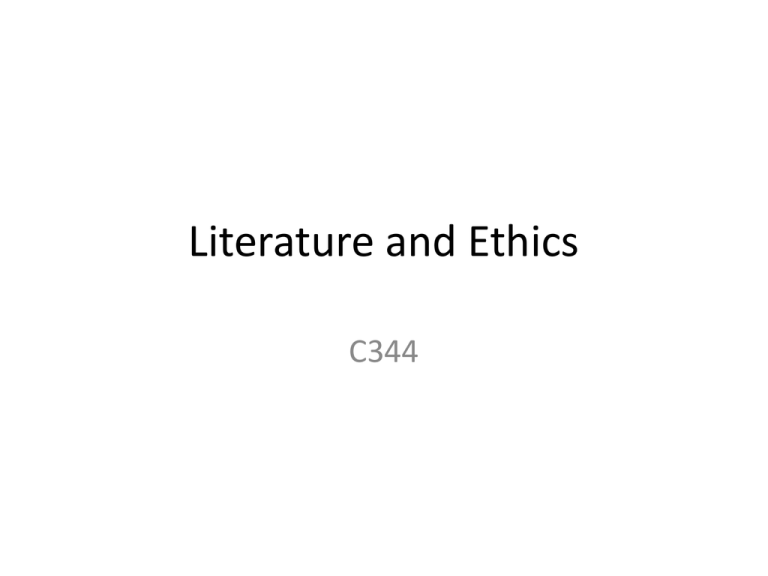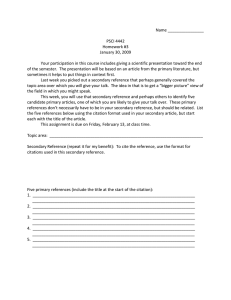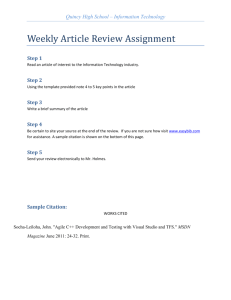Literature and Ethics C344
advertisement

Literature and Ethics C344 Role of Literature in the Paper • “Research becomes meaningful only when viewed in the context of the field’s developing knowledge.” • How can the contribution be judged outside of the current state of knowledge? • Citations serve to acknowledge others, direct readers to further information, and place research into the paradigm— either support, or showing a gap Role of Citation in the Introduction • • • • • Credibility—the author knows the field Introduction for non-expert reader Context of the current state of knowledge Shows gaps in knowledge What needs cited? Depends on assumptions about the audience – ASSUME A GENERALLY KNOWLEDGEABLE ORGANIC CHEMIST AUDIENCE Role of Citation in the Results/Discussion • Compare/contrast previous methods • Compare/contrast previous data • Validate experimental design and interpretations • What contribution(s) have been made to the field? Role of Citation in Experimental • Indicates whether or not molecule has been made before • How well does current characterization match previously reported data? • Allows for comparisons of procedure and percent yield Literature and Proposals • We won’t be proposing research based on literature, but here are some questions that can still be useful – What does the field know about the subject? – What studies have been done? – What methods have been used, and how useful were they? – What information is still needed? Writing in the Sciences, Penrose and Katz Finding Literature: Index • We will use SciFinder Scholar • Free web-based access for IUB students • Advantages of SciFinder – Comprehensive (CAS numbers) – Search on topic, author – SEARCH ON STRUCTURE! – Search reference lists (backwards) or citation lists (forwards) Citing Sources in the Text • Three major types – Name-year – Citation-sequence (most common for us) – Citation-name • Use of names – Direct citation—uses names in text when appropriate – Indirect citation—names only appear in references Format of References • DEPENDENT ON THE JOURNAL! • We will follow JOC, and use almost exclusively primary journals as our sources • Format: Last Name, Initial(s).; Last name, Initials. Journal Abb. Year, Volume, pages. Ethics • Academic Misconduct – Fabrication – Falsification – Plagiarism • Types of Plagiarism—Figure 3.4 in Writing in the Sciences – – – – Direct plagiarism of words without quotes and citation Mosaic—taking ideas and scattered words without credit Paraphrase—restating ideas in own words without citation Insufficient acknowledgment—unclear citation that does not allow reader to know what is original and what is borrowed Authorship • Academic Misbehavior rather than misconduct • Authorship means – Contribution – Responsibility • Acknowledgments • Where does proofreading come in?

